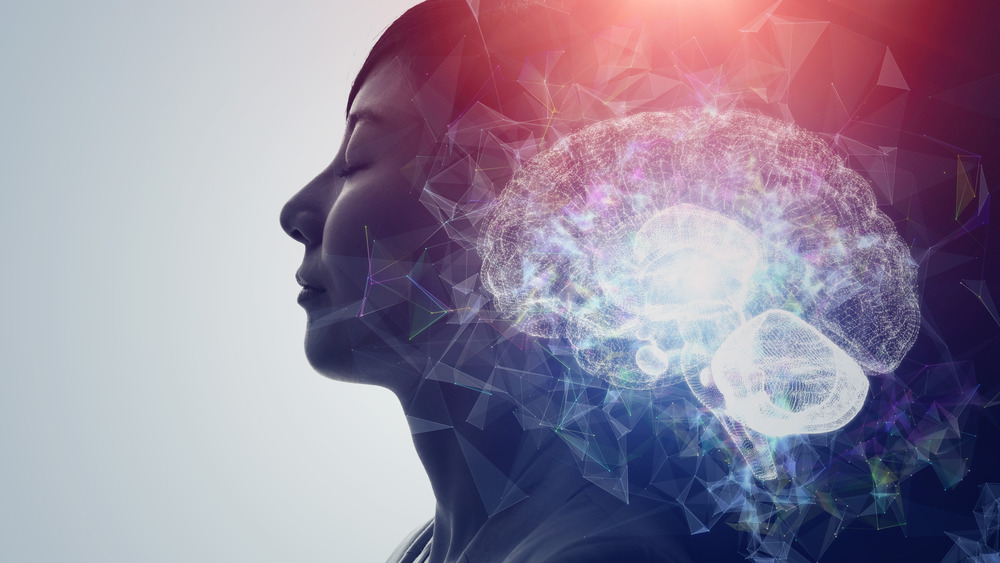Serotonin Vs Dopamine: What's The Difference?
All emotional and physiological processes are the result of chemical reactions in the brain. The specific chemicals that are responsible for sending messages throughout the nervous system are called neurotransmitters. While there are several different kinds of neurotransmitters, each crucial to your well-being, serotonin and dopamine play a significant role in mood and other essential functions (via Better Help).
Serotonin is often described as the "happy chemical" due to its association with mood regulation and its link to depression (via Medical News Today). In fact, a class of medications known as SSRIs, or selective serotonin reuptake inhibitors, is frequently used to treat mood disorders. These include depression, panic disorder, bipolar disorder, and obsessive-compulsive disorder (OCD).
According to WebMD, dopamine is connected to the pleasure and reward centers of the brain. It has a direct impact on how we learn, pay attention, and what motivates our behavior. While dopamine is associated with mood, it's more closely related to the pleasure we feel when engaging in rewarding activities.
What makes serotonin and dopamine different?
There are several key differences between dopamine and serotonin. While both are neurotransmitters and therefore present in the brain, the body stores most of its serotonin in the gut (via Medical News Today). The two chemicals work in tandem, maintaining a delicate balance. In fact, according to Medical News Today's examination of the relationship between serotonin and dopamine, they tend to operate inversely. When higher levels of serotonin are present, dopamine production drops. When serotonin drops, dopamine levels rise, potentially leading to increased reward and risk-seeking behavior.
While dopamine levels are not directly associated with depression, they are associated with common symptoms of depression, such as lack of interest in pleasurable activities. High levels and irregularities in dopamine regulation are linked to addictions, schizophrenia, and Parkinson's disease (via Healthline). Dopamine and serotonin are also associated with the sleep-wake cycle. Serotonin is a necessary precursor to melatonin, while dopamine inhibits the production of melatonin. The pineal gland contains receptors for both serotonin and dopamine.
Unfortunately, there's no direct way to measure the levels of neurotransmitters in the brain and gut. However, research continues to examine the effects of brain chemicals on overall well-being and health.

